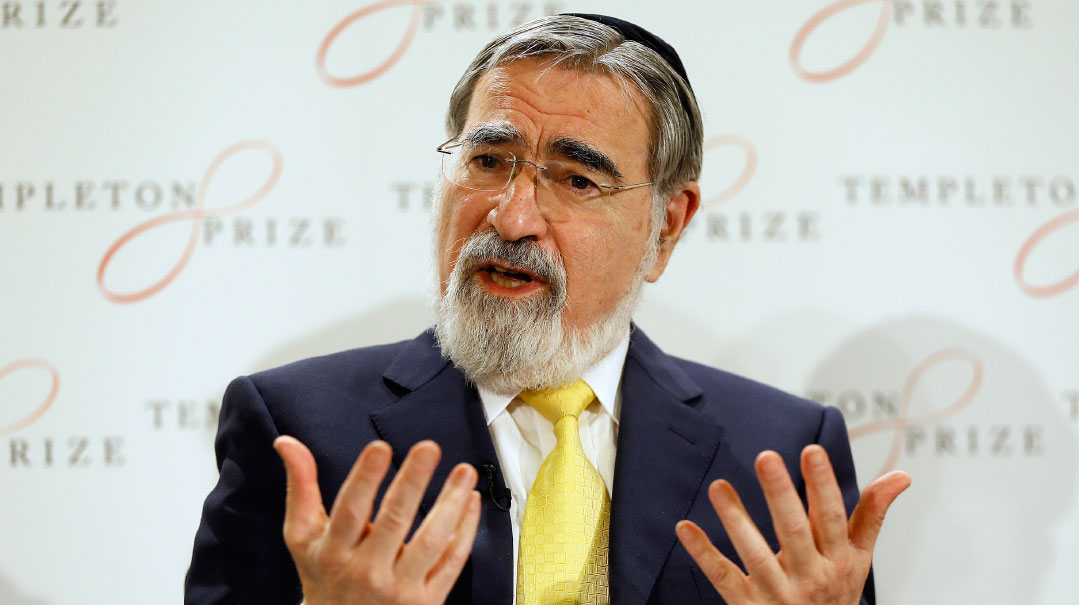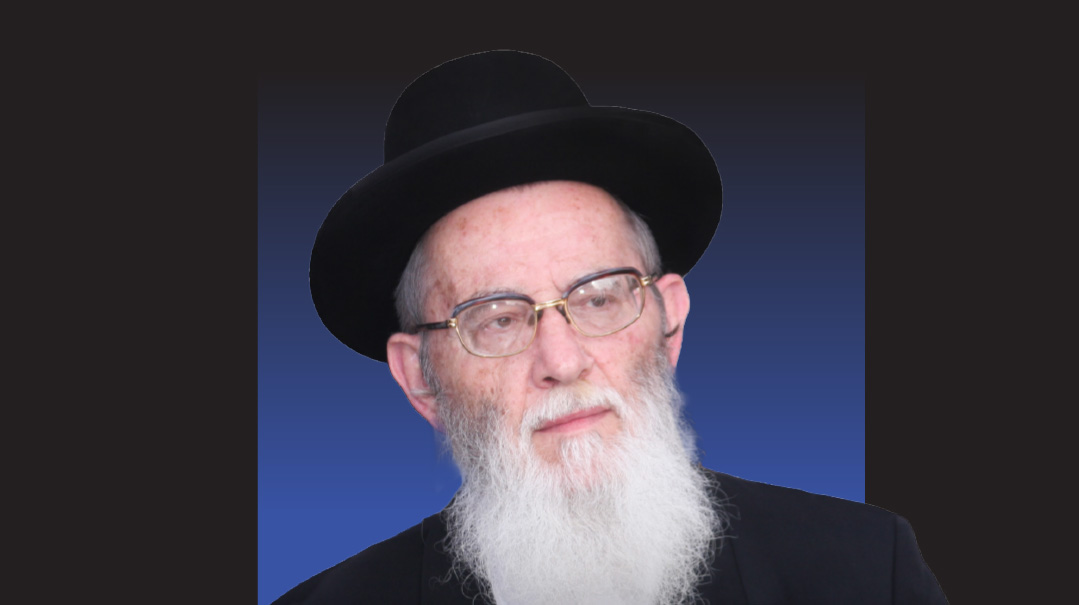Rabbi, Teacher, Beacon of Light

Rabbi Lord Jonathan Sacks had a bewildering array of titles, but his greatest title of all was Rabbi — because more than anything, he shared the Divine light of Torah with the world

Photo: AP Images
When Shabbos came to a close, and I learned of the passing of Rabbi Lord Jonathan Sacks — the famed former Chief Rabbi of the United Hebrew Congregations of the Commonwealth — I was immediately filled with a deep sense of personal loss. Rabbi Sacks was a kind and wise friend to me.
I remember how, when I was appointed Chief Rabbi of South Africa about 17 years ago, he was one of the first people who phoned me to give me chizuk. I took on the role at a relatively young age, and I was fortunate that Rabbi Sacks was there from the beginning to offer guidance and support with his characteristic grace and empathy. In the years since, I have seen his compassion and kindness emerge on many occasions, in many different ways. But even if you are like me, and you merited a personal connection with Rabbi Sacks, his loss is much greater than a personal one. It is a national bereavement for Klal Yisrael.
Thinking about his legacy as a Torah teacher, as a prolific author and speaker, as a leader of one of the great diaspora Jewish communities, as a great moral voice for the world at large, I have been trying to figure out what made him so distinctive. There is no doubt that his shiurim and books and articles and speeches had a profound impact on those who encountered them. Many were brought closer to Torah as a result of his influence. And he was an extraordinary kiddush Hashem, both within the Jewish world and outside of it. But what truly made him unique?
To answer that question, we need to take a step back and appreciate the preciousness of our Torah. Too often we take it for granted. Whether it’s the Torah shebichsav or the Torah shebe’al peh, our familiarity dulls our sense of what we have. We fail to appreciate that Torah is the ultimate chochmah — that it is Divine wisdom.
This point was repeated often by my rosh yeshivah, Rabbi Azriel Chaim Goldfein, a talmid of the Telzer Yeshivah in Cleveland. He would say, in the name of the Telzer Rosh Yeshivah, Rabbi Mordechai Katz, that we must approach the Torah as the ultimate wisdom, since it is the wisdom of Hashem, and that we must give it the appropriate respect — learning and teaching Torah in a way befitting its incomparable level of intellectual power and depth.
Torah is the wisdom of Hashem; this makes it different from all other wisdom. As the Midrash (Eichah Rabbah 2:13) says, if someone tells you there is wisdom among the nations of the world, you can believe them. But if someone tells you there’s Torah among the nations of the world, you can’t believe them. Torah is unique.
Which is why birchos haTorah, according to many authorities (Berachos 21a, see Mishnah Berurah 47:1), is one of the only two brachos that is required mid’Oraisa (the other being the Bircas Hamazon, see Berachos 21a). Birchos haTorah defines our relationship with Torah. We see this from the well-known Gemara (Nedarim 81a) that says the First Temple was destroyed because it was a generation that didn’t say the brachos before learning Torah. They did not relate to the Torah as Divine wisdom, and as a result lost all connection to it.
The Torah’s Divine wisdom is also the very foundation of our world, the blueprint for all human existence. As the Midrash (Bereishis Rabbah 1:1) says, “Hashem looked into the Torah, and He created the world.” And as the Mishnah in Pirkei Avos (5:26) says, “Turn it over and over, for everything is in it.” Therefore, we have a sacred duty to teach and learn Torah in a manner befitting its status as chochmas Hashem.
Rabbi Lord Jonathan Sacks provided us with glimpses of this depth and brilliance. Hashem gifted him with a brilliant intellect, with unsurpassed eloquence, with a magnetic presence — with the all-too-rare ability to articulate the breadth and depth of Torah in a way that moved people, showed people its beauty and relevance, and enabled its Divine light to shine forth. Rabbi Sacks presented Torah in a way that made its chochmah, its Divine wisdom, evident to all people, Jewish and not. As it says in Devarim (4:6), “For it is Your wisdom in the eyes of the nations.” Rabbi Sacks brought this verse to life.
Rabbi Sacks had a deep and wide-ranging grasp of Western wisdom. He was remarkably well-versed in fields as divergent as sociology, psychology, philosophy, and literature. This enabled him to present Torah in a manner that was clear and compelling to Western audiences. In doing so, he tackled some of the most difficult and complex issues facing the world — religious intolerance, anti-Semitism, secularism and materialism, faith and science, the “politics of anger.” He was able to unlock the wisdom of Torah and use it to illuminate these intractable problems in a way that was breathtaking. He showed in the most powerful way that “everything is in it,” and that it is the blueprint for existence that Hashem used as the master plan for all of creation.
Along the way, he guided prime ministers and kings, influenced thought leaders and social commentators, and inspired Jews who are actively involved in Torah and mitzvos along with those who are completely unaffiliated. Many Jews who were initially very distant from Yiddishkeit have expressed how, through his articles and books and speeches, they felt drawn to Torah wisdom and thinking.
Rabbi Sacks won numerous prizes, was awarded countless doctorates, held any number of prestigious leadership positions. He had a bewildering array of titles; no one was really sure what to call him. But his greatest title of all was Rabbi. A Torah teacher. And he taught Torah to the world.
In time, Rabbi Sacks became, in effect, one of the great global ambassadors for Torah — and a tremendous kiddush Hashem. He sanctified Hashem’s Name by showing the world the greatness of Hashem, the greatness of Torah, and thereby the greatness of Klal Yisrael. Rabbi Lord Jonathan Sacks had that gift to allow the light of the Divine wisdom of the Torah to shine so bright that all could see it — and he used it prodigiously.
May his memory be a blessing.
(Originally featured in Mishpacha, Issue 835)
Oops! We could not locate your form.












